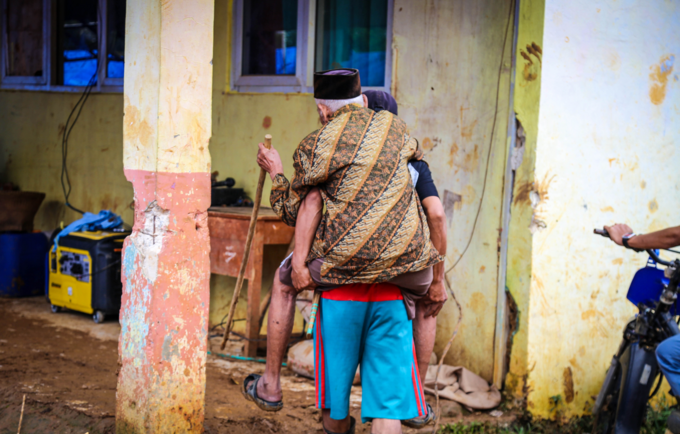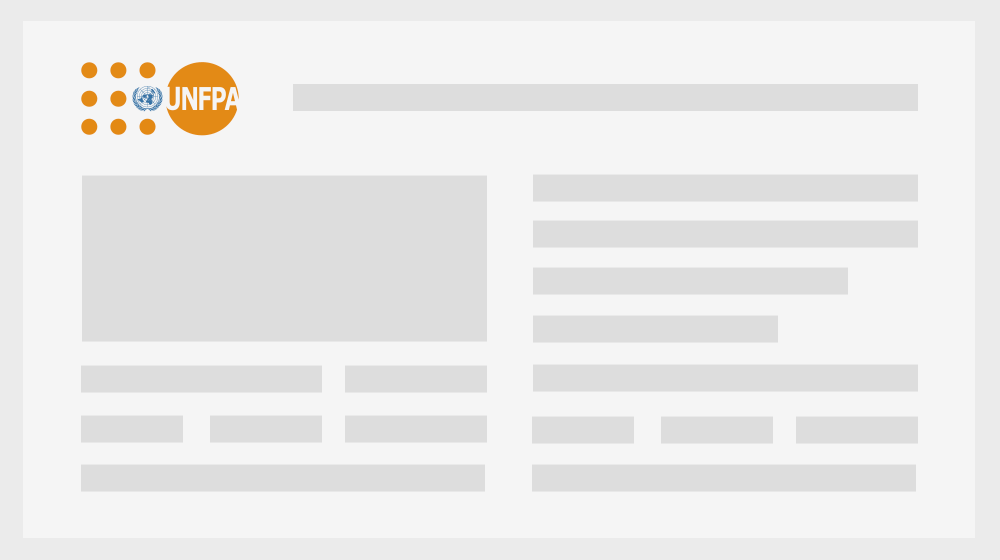One in nine persons in the world is aged 60 years or over. This number is projected to increase to one in five persons by 2050, demonstrating that population ageing is a global phenomenon that we can no longer ignore. In Indonesia, the current population size of people over 60 years old is estimated to be 28 million people, and is expected to almost double to 50 million people by 2035.
Increased longevity is one of humanity’s greatest achievements as healthy and socially active older persons can bring endless contributions to family, community, and society as a whole. However, such opportunities come with social, economic, and cultural challenges.In particular, their vulnerabilities and specific needs heighten during humanitarian crises.
In 2020, the COVID-19 pandemic amplifies and highlights the vulnerabilities and specific needs of older persons. The fatality rate for older people is higher compared to the younger population, and for those over 80, it is five times the global average. In Indonesia, the proportion of older people (60 years old and above) accounts for 41 percent for the COVID-19 related deaths, while their proportion for the COVID-19 positive cases is merely 10.9 percent according to the COVID-19 National Task Force data as of 22 September 2020.
“This pandemic exposes the cracks in our societies—and they are huge fault lines of age discrimination, of racism and gender discrimination, and of discrimination by ability and mobility,” says Dr. Natalia Kanem, the Executive Director of United Nations Population Fund (UNFPA), during UNFPA & WHO webinar on older persons and COVID-19 in April 2020.
As a custodian of population data and development, UNFPA helps to ensure the needs of older persons and their caregivers are at the center of the COVID-19 humanitarian response. In April, UNFPA Asia and the Pacific Regional Office (APRO) released the UNFPA COVID-19 Regional Technical Guidance on Older Persons, which was followed by the United Nations Secretary General issuance of Policy Brief on the Impact of COVID-19 on older persons in May.
Since the beginning of the pandemic, UNFPA Indonesia has been working closely with the Ministry of National Development Planning (Bappenas), Ministry of Health, and partners in National Protection and Displacement clusters so that priority is given to the needs of older persons in its collective response action toward COVID-19 pandemic.
For example, in collaboration with Bappenas and Economic Research Institute for ASEAN and East Asia (ERIA), UNFPA Indonesia has provided technical assistance in a phone survey to explore the needs and experiences of older persons during the pandemic. Moreover, UNFPA Indonesia has distributed emergency supplies for older persons who reside in temporary shelters in Central Sulawesi, in collaboration with the Provincial Health Office, Provincial Women Empowerment and Child Protection office, and local non-government organisations (NGOs), namely Libu Perempuan, Yayasan Kelompok Pejuang Kesetaraan Perempuan Sulawesi Tengah (KPKPST), and Yayasan Kerti Praja (YKP).
With the Ministry of Health, UNFPA Indonesia is currently developing practical guidelines in the provision of essential services to older persons during disaster situations including the COVID-19 pandemic. “UNFPA is hoping to strengthen its partnerships with the Government of Indonesia and other stakeholders to ensure no one is left behind in humanitarian response as well as in development effort”, says UNFPA Representative Anjali Sen.
COVID-19 pandemic has made us aware of the specific needs of older persons, especially in humanitarian response. Now it is our homework to make meeting their needs a priority.
Megumi Uchino
Humanitarian Analyst, UNFPA Indonesia


